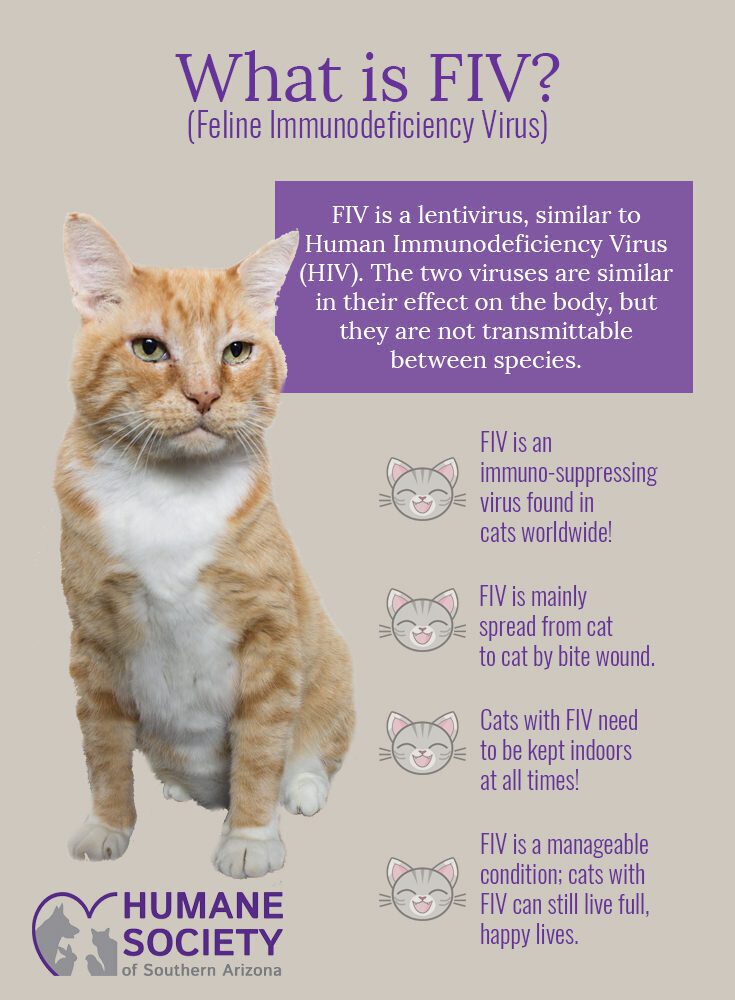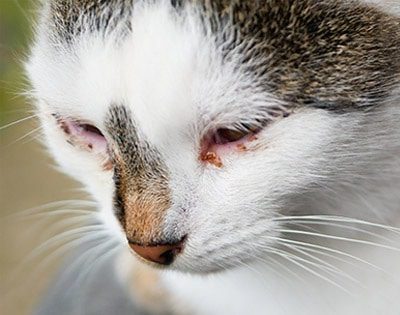Key Takeaways:
- The FIV vaccine is not recommended for all cats, as it is primarily intended for those at high risk of exposure to the virus.
- Cats that are strictly indoor pets and do not come into contact with other potentially infected cats may not need the FIV vaccine.
- The FIV vaccine does not provide complete protection against the virus, but it can help reduce the severity of symptoms if a vaccinated cat becomes infected.
- There is controversy surrounding the effectiveness and safety of the FIV vaccine, with some studies suggesting potential risks and limited long-term benefits.
- Consulting with a veterinarian is crucial in determining whether or not to vaccinate a cat against FIV, as they can assess individual risk factors and provide personalized recommendations.
Are you a proud cat owner? If so, there's an important topic that every feline lover should know about - the FIV vaccine debate. Understanding this subject is essential for ensuring the health and well-being of your furry friend. In simple terms, FIV stands for Feline Immunodeficiency Virus, a disease that affects cats worldwide. But here's where it gets interesting: there is an ongoing debate among experts regarding the effectiveness and necessity of the FIV vaccine. By delving into this topic, you'll gain valuable insights into the benefits and potential drawbacks of vaccinating your cat against FIV. Plus, you'll be equipped with the knowledge to make informed decisions about your pet's healthcare. So join us as we explore this fascinating subject that could have a significant impact on your beloved feline companion's life. Get ready to uncover the truth behind the FIV vaccine debate!
What is the FIV vaccine and why should cat owners know about it?
The FIV vaccine, also known as the feline immunodeficiency virus vaccine, is a preventive measure designed to protect cats from a specific virus called FIV. FIV is similar to HIV in humans and can weaken a cat's immune system, making them more susceptible to infections and diseases.
Cat owners should know about the FIV vaccine because it can help prevent their furry friends from contracting this potentially life-threatening virus. By vaccinating their cats, owners can reduce the risk of their pets developing FIV and ensure they live healthier lives.
How does the FIV vaccine protect cats from a specific virus?
The FIV vaccine works by stimulating a cat's immune system to produce antibodies that can fight off the feline immunodeficiency virus. When a vaccinated cat comes into contact with the actual virus, these antibodies recognize and attack it, preventing it from infecting the cat's cells.
The vaccine contains harmless parts of the FIV virus or an inactivated form of the virus. These components stimulate an immune response without causing illness in the cat. This helps prepare the cat's immune system to recognize and respond effectively if it encounters the real virus in the future.
Who can get the FIV vaccine for their cats?
The FIV vaccine is recommended for all cats, especially those at higher risk of exposure to the feline immunodeficiency virus. Outdoor cats who may come into contact with other infected cats are particularly vulnerable and should be vaccinated. Additionally, multi-cat households where there is already an infected cat should consider vaccinating all their feline companions.
It is important to note that kittens under 16 weeks of age should not receive this vaccine as they may have maternal antibodies that can interfere with the vaccine's effectiveness. It is best to consult a veterinarian to determine the appropriate timing for vaccination.
How does the FIV vaccine protect cats from a specific virus?
The mechanism of the FIV vaccine
The FIV vaccine works by stimulating the cat's immune system to produce antibodies that can recognize and neutralize the feline immunodeficiency virus (FIV). When a cat is vaccinated, a small, harmless portion of the virus or a modified version of it is introduced into their body. This triggers an immune response, leading to the production of specific antibodies that can recognize and bind to the FIV if the cat is exposed to it in the future. These antibodies help prevent the virus from infecting and replicating within the cat's cells, reducing the severity of FIV-related illnesses.
Diagram: Mechanism of FIV Vaccine
Who can get the FIV vaccine for their cats?
Cats at risk for exposure to FIV
The FIV vaccine is recommended for cats that are at high risk of exposure to feline immunodeficiency virus. This includes outdoor cats who may come into contact with infected cats through fighting or mating, as well as indoor cats living in households with known FIV-positive cats. It is important to note that kittens younger than 16 weeks old should not receive this vaccine as their immune systems are still developing. Additionally, cats with compromised immune systems or those already infected with FIV should not be vaccinated, as it may not provide any benefit and could potentially cause adverse reactions.
List: Cats eligible for FIV vaccination
- Outdoor cats with potential exposure to infected cats
- Indoor cats living with FIV-positive cats
- Healthy adult cats without compromised immune systems
Benefits of vaccinating your cat against FIV
Reduced risk of FIV infection and associated illnesses
Vaccinating your cat against FIV offers several benefits. Firstly, it significantly reduces the risk of your cat contracting the virus, especially if they are exposed to infected cats. This can help prevent the development of FIV-related illnesses, which can be severe and potentially life-threatening. Vaccination also contributes to the overall health and well-being of your cat by strengthening their immune system. By reducing the likelihood of FIV infection, you are providing your feline companion with a better chance at a long and healthy life.
List: Benefits of FIV vaccination
- Decreased risk of FIV infection
- Prevention of severe FIV-related illnesses
- Strengthened immune system for overall health
Risks and side effects of the FIV vaccine for cats
Potential adverse reactions
While the FIV vaccine is generally safe, there are potential risks and side effects that cat owners should be aware of. Some cats may experience mild reactions at the injection site, such as swelling or soreness. In rare cases, more serious allergic reactions can occur, including difficulty breathing or facial swelling. It is important to consult with a veterinarian before vaccinating your cat to assess any potential risks based on their individual health status. Monitoring your cat closely after vaccination and seeking immediate veterinary care if any concerning symptoms arise will help ensure their well-being.
List: Possible risks and side effects
- Mild swelling or soreness at injection site
- Rare allergic reactions (difficulty breathing, facial swelling)
Can a vaccinated cat still get infected with FIV? What does the vaccine do?
Vaccine effectiveness and limitations
While the FIV vaccine is highly effective in reducing the risk of infection, it is not 100% foolproof. There is a small possibility that a vaccinated cat may still become infected with FIV if they are exposed to a high viral load or a different strain of the virus than what the vaccine protects against. However, even if a vaccinated cat becomes infected, the vaccine can still provide some benefits. It may help reduce the severity of symptoms and slow down disease progression, improving the cat's quality of life. Therefore, vaccination remains an important preventive measure despite its limitations.
List: Vaccine effectiveness and limitations
- Highly effective in reducing risk of infection
- Small possibility of breakthrough infections
- Can still provide benefits if infection occurs
The debate surrounding the use of the FIV vaccine in cats
Controversies and differing opinions
The use of the FIV vaccine in cats has sparked debates among veterinarians and researchers. Some argue that routine vaccination for all cats is unnecessary due to low overall prevalence of FIV in certain areas or specific cat populations. They believe that focusing on other preventive measures such as spaying/neutering, keeping cats indoors, and regular testing for FIV may be more beneficial. On the other hand, proponents of widespread vaccination emphasize its role in protecting individual cats and preventing further spread of the virus within communities. Ultimately, it is important for cat owners to consult with their veterinarian to make informed decisions based on their specific circumstances.
List: Points in the debate
- Routine vaccination debated due to low prevalence in certain areas/populations
- Emphasis on alternative preventive measures (spaying/neutering, indoor living)
- Advocates highlight individual protection and community prevention
Factors to consider when deciding to vaccinate your cat against FIV
Key considerations for cat owners
When making the decision to vaccinate your cat against FIV, there are several factors to consider. Firstly, assess the risk of exposure based on your cat's lifestyle and environment. Outdoor cats or those living with FIV-positive cats may benefit more from vaccination. Additionally, evaluate your cat's overall health status, as some cats with compromised immune systems may not be suitable candidates for vaccination. It is crucial to have an open discussion with your veterinarian, who can provide personalized advice based on your cat's individual needs and circumstances.
List: Factors to consider
- Cat's lifestyle and potential exposure risks
- Cat's overall health status
- Consultation with veterinarian for personalized advice
In conclusion, the FIV vaccine debate is complex and ongoing. While some experts believe it can be beneficial for certain cats, others argue that it may not offer significant protection. It is important for cat owners to consult with their veterinarian and make an informed decision based on their individual cat's health and lifestyle.
Why is FIV vaccine not recommended?
The FIV vaccine contained substances that stimulate the immune system, making it an adjuvanted vaccine. However, this raised concerns about the development of vaccine-site sarcoma, a form of cancer that can occur at the injection site when an adjuvanted vaccine is used.
Should cats always be given a vaccine for FIV?
Since cats usually get infected with FIV through bites during fights, the chances of infection can be reduced by neutering your cat and keeping them indoors if possible. Unfortunately, there is currently no vaccine for FIV.
What do I need to know about owning a cat with FIV?
Due to the potential risk of FIV leading to weakened immune systems and increased susceptibility to certain infectious diseases, it is crucial for cats with FIV to receive regular veterinary care every six months. Additionally, there is a possibility that some of the infectious diseases that an FIV-infected cat can develop or carry may be transmitted to humans.
When was FIV vaccine discontinued?
Even though this vaccine was no longer being used in the U.S. and Canada by 2015, the American Association of Feline Practitioners (AAFP) states that the antibodies it generated can remain in certain cats for over seven years. This indicates that the testing for FIV will continue to be challenging for several more years.
Which vaccine is not recommended for cats?
According to the Task Force, the FIP vaccine is usually not recommended.
What happens if I don't vaccinate my cat every year?
You may be wondering if it's necessary to give your cat booster vaccinations after their initial vaccinations. Research indicates that not getting booster vaccinations puts your cat at a higher risk of infection.
















